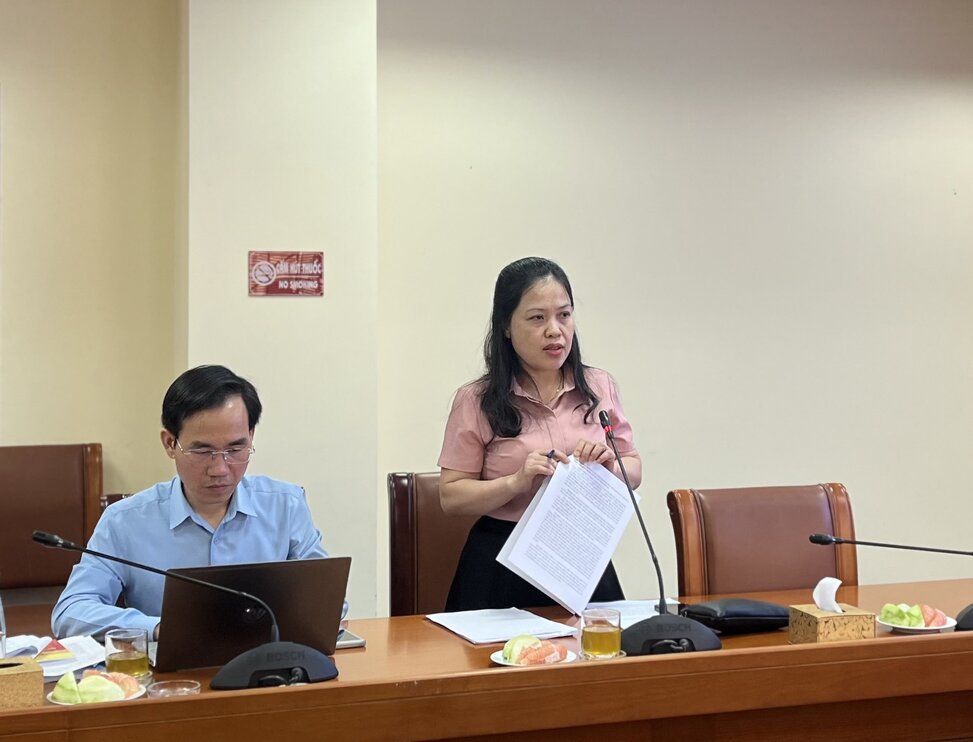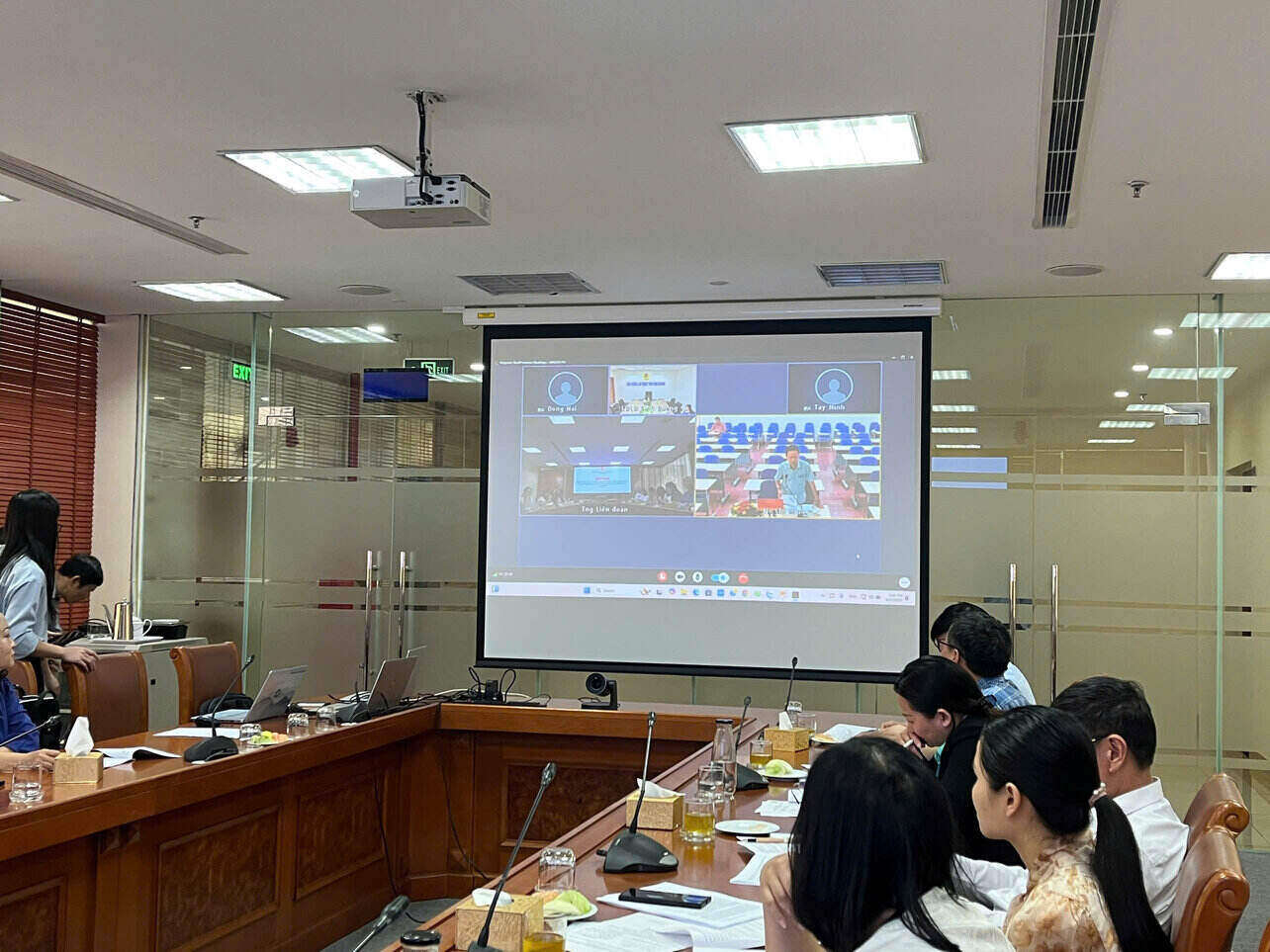The conference took place in person and online with the participation of experts, scientists, and union officials.
In his opening speech, Vice President of the Vietnam General Confederation of Labor (VGCL) Ngo Duy Hieu emphasized the unresolved situation of workers' rights, especially regarding wages, social insurance, and health insurance when businesses go bankrupt. One of the reasons is that the legal corridor to resolve workers' rights in this case still has many gaps.
Therefore, it is necessary to give opinions on the handling of unpaid wages, social insurance, health insurance, unemployment insurance; mechanisms to resolve workers' rights; rights and responsibilities of trade union organizations...

Opinions at the conference revolved around the current situation and solutions to ensure the rights of employees when businesses go bankrupt.
The representative of Ho Chi Minh City Labor Federation said that according to the report of the City People's Court in 2024, serving the supervision of the City People's Council, the Court industry accepted 105 applications, resolved 70 applications, of which 48 decided not to open bankruptcy procedures, 22 decisions to open bankruptcy procedures. Specifically, the city level accepted 33 applications, resolved 14 applications reached 42.42%, the district level accepted 72 applications, resolved 56 applications reached 77.77%.
From reality, according to Ho Chi Minh City Labor Federation, although the law has given the right and practice also shows the important role of the Trade Union, the coordination process between the Trade Union and the authorities in the bankruptcy procedure is still facing many difficulties and obstacles. One of them is that the enterprise does not proactively carry out the bankruptcy procedure: According to the law, when the enterprise is insolvent, the legal representative has the obligation to submit the request for opening of bankruptcy procedures. However, in reality, very few businesses voluntarily fulfill this obligation, especially businesses owe salary and insurance debt of workers. Many business owners fled and dodged the responsibility that the Union had to initiate procedures but often too late.

The opinion of the Institute for Strategic Strategic Research and Trade Union Magazine pointed out the practice of implementing the Bankruptcy Law 2014 shows that the provisions on the order of priority of paying debts, including salary debt, social insurance, health, unemployment are still inadequate, not really protecting the workers - the most weak and vulnerable groups of businesses when the enterprise is bankrupt.
With the goal of comprehensively amending the Bankruptcy Law, clarifying the scientific basis for the regulation of priority in paying wages, social insurance, health insurance, and unemployment insurance for employees in advance for other debts in bankruptcy proceedings for businesses and cooperatives in a "reasonable - reasonable" manner is extremely necessary, thereby ensuring social justice, properly implementing international commitments and promoting a healthy investment and business environment...











